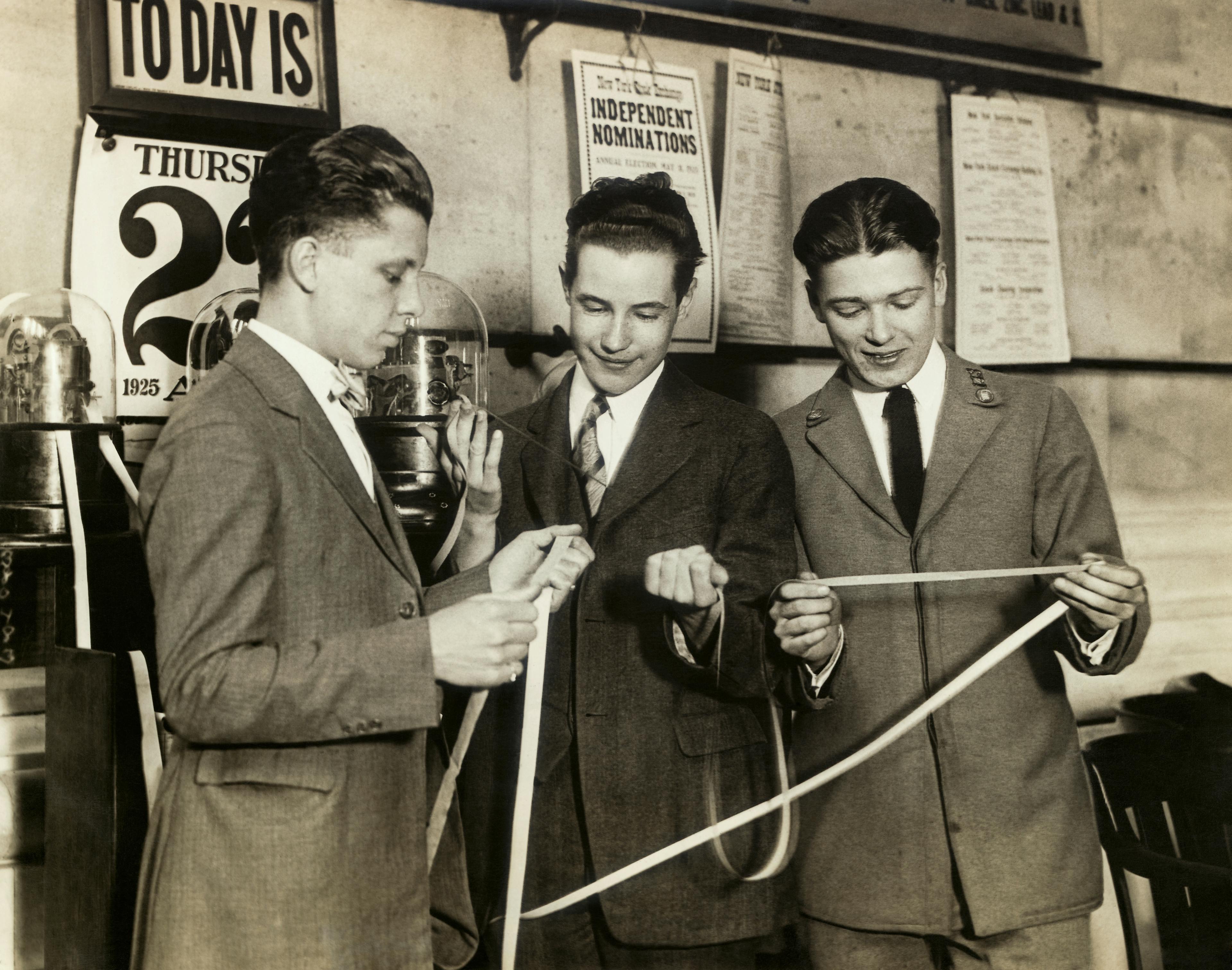A time traveler’s guide to the stock market
Cigarettes and asphalt, my friends. Cigarettes and asphalt.
Wall Street. 1925. You’ve just stepped out of the contraption that’s carried you back nearly a century and you have less than an hour before you must get back on the time machine and return to 2024. Any longer, and the warp and weave of the fabric of time will bend inward upon you, ultimately destroying the universe as you know it.
So, smart guy, what stocks should you buy? Luckily, you’re clutching a recent working paper from University of Arizona finance professor Hendrik Bessembinder in your grubby mitt.
In it he’s sifted through the list of 29,078 stocks contained in the database maintained by the Center for Research in Security Prices, or CRSP, a spinoff of the University of Chicago that serves as, essentially, the national repository of stock market history.
Unlike the abstruse theoretical papers churned out by many finance academics, Bessembinder’s paper, entitled “Which U.S. Stocks Generated the Highest Long-Term Returns?,” is admirably direct.
“I confess,” he told us in an email. “I mainly produced this short paper because I became aware that people were interested in knowing the answer to the title question. Knowing that answer could be handy in a trivia contest.”
In it, he ranks the stocks that generated the highest cumulative compound returns during the ninety-eight years spanning December 31, 1925 to December 31, 2023, creating a genuinely remarkable list. Here’s the top 10 performers.
Cigarettes and asphalt, my friends. Cigarettes and asphalt. Marlboro-maker Altria Group, previously known as Philip Morris, tops the list with a truly eye-popping return of nearly $2.7 million dollars per $1 invested back at the end of 1925. Vulcan Materials — which went public under that name 1957 after a merger with Union Chemical — provided a large share of the asphalt and rock used to build the interstate highway system, was second on the list with $1 invested at that same starting point returning nearly $400,000 for ultra long-term buy-and-holders. Railroad Kansas City Southern, which fell out of the database after it was a purchased by Canadian Pacific in 2021, comes next, and so on down the line.
Does such a list offer any major lessons, to those hoping to outperform the market over next century or so? Not particularly, Bessembinder told us. Although he did note that actually these long-term performers had somewhat moderate returns — on an annualized basis — compared to the companies that periodically pop up throughout stock market history through surging and capturing the imagination of an entire generation of investors, before ultimately fizzling out. Think RCA in the 1920s, Polaroid in the 1960s, or Cisco in the 1990s.
“Really high returns,” he wrote to us. “Don’t persist.”
The other lesson, of course, is that time can be an ally of investors, if they happen to buy the stocks that can stand its tests. Plenty don’t. Bessembinder’s paper notes that more than 10,000 of the stocks that appeared in the CRSP database only appear for five years or less before being delisted.
While delisting can occur for good reasons — when a company with a high flying stock price is purchased at a premium by another firm — most with brief stints as publicly traded companies are poor performers, with over 60% posting negative annual returns, that is, losses for investors.
In fact, of the entirety of the 29,000 stocks that that have bestrode the public markets over the last century, about 52% ended up posting negative annual returns. Thankfully, the gains of the winners far outpaced the losses of the losers over the last century, generating an average compound return across all stocks of $229 per dollar invested, or 22,840%.
